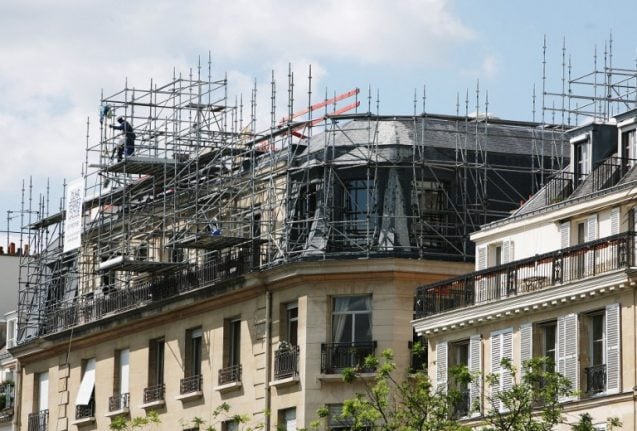The Ile de France region passed a “Small Business Act” on Thursday aimed at funnelling more local public contracts to small French businesses.
It includes a so-called Moliere clause which will oblige firms working on publicly-funded building projects, or in other areas such as transport or training, to use French as their working language.
“This clause is necessary and targets foreign companies who come with their teams, without any of them speaking French.
“These companies need to improve,” vice president of the region Jerome Chartier said afterwards.

Officially anyway, authorities say the clause is needed to boost security and safety on building sites, which can often be hazardous environments if workers don't communicate.
Better communication is achieved by everyone speaking French, those behind the rule say.
But in reality the clause is to crack down on the influx of temporary foreign workers, of which there are believed to be around 500,000 in France.
The French government has long criticised EU rules that allow companies, which themselves are often from abroad, to bring in much cheaper foreign workers temporarily, often from eastern Europe, who undercut locals.
EU rules on public procurement prevent states from discriminating against companies from another European country uniquely on the grounds of their nationality.
By bringing labourers from Poland or Portugal unscrupulous companies pay less payroll taxes because they are paid in the country where the workers are from, rather than France.
And the often undeclared workers tend to accept working for longer hours and are often paid cash in hand.
François Fillon is considering rolling out a law that would apply nationally rather than leaving it up to different regions to impose the requirements.
Opponents to the Moliere clause, named after the 17th century French playwright, point out that it will disadvantage newly arrived foreigners living in France who are able to integrate via the workplace and learn French.
It also risks being difficult to monitor and enforce.
“In any case, speaking French does not help much when you moving cement around or demolishing walls,” Oleg a Ukranian labourer working at a site on the edge of Paris told Le Temps news site.
Not only this, but some see it as a spiral that may end up harming French workers, who are employed in countries like Germany or the UK.
Some 150,000 skilled French tradesmen work abroad and they may struggle if they too are forced to speak the local language.
Opponents say the EU just needs to tighten its legislation.
Other French regions Normandy, Hauts-de-France and Auvergne-Rhone-Alpes have also introduced rules requiring companies to use the French language on public building sites.
Regions including Ile-de-France are considering creating teams of inspectors who would visit building sites to listen out for other languages.




 Please whitelist us to continue reading.
Please whitelist us to continue reading.
Member comments